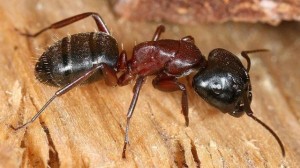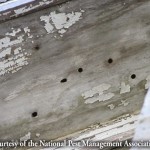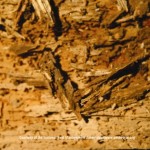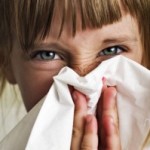READY TO GET STARTED?
REQUEST A FREE ESTIMATE
Fill out the form below or call (888) 466-7849 for a free, no-obligation estimate.
Now that it’s pollen season, many people are suffering sneezing, coughing and discomfort due to an allergy to different pollen types. Though many people know that this triggers allergies within them, they may not know that various household pests can also contribute to allergies. Additionally, those who have asthma may suffer to pests such as cockroaches or mice being in home because these pests can spread strong asthma triggers.
PestWorld.org provides facts about pests and asthma, as well as a ‘First Responder PSA’ that highlights the risk that household pests can put us at when we are indoors. For instance, 63% of American homes contain allergens from cockroaches, but if the home is located in an urban area, it can even reach 98%! Additionally, mice can spread asthma triggers found in 82% of homes. According to the Asthma and Allergy Foundation of America, patients with cockroach allergies develop acute asthma attacks after inhaling cockroach allergens. Allergens can come from not only the actual body of the pest, but also its saliva and feces.
If you are experiencing minor symptoms such as, the AAFA recommends the use of antihistamines, decongestants and anti-inflammatory medications. An effective means to reduce the chance of exposure to pest allergens is using regular treatment through a pest control company. Northwest Exterminating offers services that eliminates and reduces the occurrence of a wide array of household pests including mice and cockroaches.
Sources:
http://www.pestworld.org/multimedia-center/first-responder-psa/
 Ants have been making their presence known in homes as of late. Ants are one of the most common pests that homeowner’s and pest professionals find in and around homes. Common ant species are fire ants, carpenter ants, Argentine ants, acrobat ants, and odorous house ants.
Ants have been making their presence known in homes as of late. Ants are one of the most common pests that homeowner’s and pest professionals find in and around homes. Common ant species are fire ants, carpenter ants, Argentine ants, acrobat ants, and odorous house ants.
Ants have a wide range of habits. Some ants build mounds in the ground, others are found in homes near cracks and crevices, on counters, in kitchen sinks, pantries, and even bathrooms. Knowing the different species of ants and their habits and preferences is key in controlling an ant problem.
Most ants are simply a nuisance pest. They cause little damage but will invade and ruin food and some ants bite. Generally speaking, there are no diseases associated with ants.
A licensed pest professional can identify the type of ant that you are experiencing and develop a customized plan to get rid of ants. With this process, you are using the least amount of chemical possible (if any) while also coming up with a plan that will deter ants from returning. If you are one of the many homeowner’s experiencing ants right now, call Northwest Exterminating at 888.466.7849 or visit www.callnorthwest.com
We recently acquired this book that had been destroyed by termites. These things really had a hunger for knowledge! hehe! Ok, ok, we’ll stop. This is a great example of how termites can cause significant damage. Make sure that you have termite protection for your home. You wouldn’t want any piece of your home looking like this textbook. Call Northwest Exterminating 888.466.7849.

Carpenter Bee Damage Source: NPMA
There’s been a lot of buzz (pun intended) on our blog about carpenter bees and termites. It’s termite season so we always want to keep our readers aware of the potential risks and damage that termites can cause. And carpenter bees are our Pest of the Month for the month of April. Both of these wood-boring pests should be taken seriously due to the great amount of damage that they can cause.
Carpenter bees eat through soft woods where they make their nests and lay their eggs inside the tunnels. This can cause damage to decks, eaves, porches, or even support beams in your home. Luckily, they are rarely a threat to humans. Males don’t have stingers but do tend to be aggressive toward other bees, animals, or humans that are near their nests. The female carpenter bee has a stinger but rarely uses it.

Termite Damage Source: NPMA
Termites (March’s Pest of the Month) are working 24/7 to find food…and unfortunately for us, their food is typically the wood that was used to build our homes. Without termite protection, your home could be at risk for severe damage. Termites are responsible for more than $2 of damage to homes in the US each year. Like carpenter bees, termites often leave a trail of wood that can serve as a tell-tale sign that they are there.
Whether you have carpenter bees or termites, you should contact a licensed pest professional. Not only will they be able to correctly identify the insect but they will be able to develop a customized plan that is specific to your home and your situation. By doing this, you are ensuring that the problem is diagnosed correctly, that the correct product, if any, is being used correctly and safely, and that proper steps are taken to ensure that the issue does not reoccur. Northwest Exterminating and our highly trained pest professionals will be glad to come to your home and do a free inspection of your home. Just give us a call at 888.466.7849 or visit us at www.callnorthwest.com
 After a season filled with clouds and rain, I believe most of us are excited for the warmer temperatures that the spring is bringing us. However, not everyone is enjoying the fresh air of spring, especially not those suffering from allergies. Sneezing, itching, and watery eyes shouldn’t be synonymous with spring.
After a season filled with clouds and rain, I believe most of us are excited for the warmer temperatures that the spring is bringing us. However, not everyone is enjoying the fresh air of spring, especially not those suffering from allergies. Sneezing, itching, and watery eyes shouldn’t be synonymous with spring.
Reports have been made that this could be one of the toughest allergy seasons that we’ve seen in years. A recent pollen count in Atlanta just last week (4/11) was 8,024 (anything over 1,500 is considered extremely high). Pollen is everywhere so it can be difficult to avoid. Below are some steps you can take to reduce your exposure to pollen:
Sources:
http://www.webmd.com/allergies/spring-allergy-tips
http://www.atlantaallergy.com/